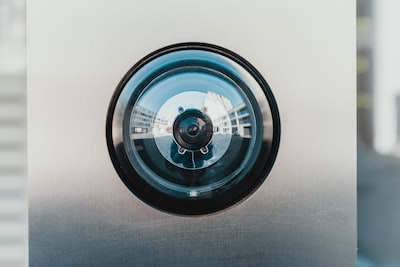Sound engineering is an intricate craft that demands acute attention to detail, a discerning ear and an unwavering focus. But what if there was a tool that could lend a helping hand to sound engineers, meticulously scanning their inboxes and sniffing out important information? Enter AI email surveillance for sound engineers.
This cutting-edge technology harnesses the power of artificial intelligence to sift through the endless streams of emails, extracting key details and allowing sound engineers to stay organized and in control. From tracking project deadlines to coordinating with clients, this AI-powered system takes the burden off their shoulders and lets them focus on what they do best – perfecting the auditory experience.
But, with the rise of AI, concerns about privacy and security naturally arise. It’s crucial to understand the implications and potential risks associated with this new wave of technology.
In the fast-evolving technological landscape, where artificial intelligence (AI) is becoming increasingly integrated into our daily lives, one cannot overlook its cultural and ethical implications. Nowhere is this more evident than in the realm of email monitoring for sound engineers.
The advent of AI has revolutionized the way we approach surveillance, providing powerful tools to sift through vast oceans of data. As sound engineers rely on email communication to coordinate projects, share sensitive information, and collaborate with a diverse network of industry professionals, the role of AI in email monitoring becomes paramount.
However, this utilization raises profound questions about privacy, autonomy, and the boundaries of technological intrusion. To fully comprehend the ethical enigma that AI-empowered email surveillance presents, it is imperative to delve into the underlying dynamics and to critically examine the implications for sound engineers and their professional practices.
Table of Contents
Introduction: Investigating the Ethical Dilemmas of AI-Enhanced Email Surveillance.
Artificial intelligence (AI) is widely used in various industries to improve efficiency and productivity. However, ethical concerns arise when it comes to email surveillance.
This article explores the complexities of AI-powered email monitoring for sound engineers. The challenge lies in balancing privacy rights and security measures.
While AI can identify security threats, it also raises concerns about privacy invasion and abuse. It is important to carefully address the challenges and solutions in AI-powered email monitoring for sound engineers to ensure ethical and responsible use of this technology.
This controversial topic requires further understanding and exploration.
The Role of AI in Revolutionizing Sound Engineering Practices.
AI technology is making its mark in sound engineering, raising important questions about privacy and consent. Implementing AI-powered email surveillance has become a hot topic as the industry strives for innovation and efficiency.
Sound engineers can now analyze and categorize emails to enhance their work. However, ethical guidelines for implementing AI email surveillance in sound engineering are essential to navigate the fine line between progress and infringement on personal privacy.
It is crucial to weigh the benefits and potential consequences of this uncharted territory, ensuring a balance between harnessing the power of AI and upholding our values and principles.
Legal and Ethical Implications of AI-Powered Email Monitoring.
Unveiling the Ethical Enigma: AI-Empowered Email Surveillance for Sound Engineers delves into the legal and ethical implications involved in the controversial practice of AI-powered email monitoring. With the rapid advancements in Artificial Intelligence, sound engineers now have the ability to analyze email content for potentially harmful or sensitive information.
However, this newfound power raises ethical considerations in AI email surveillance. Is the monitoring of employees’ electronic communication an invasion of privacy or a necessary tool for maintaining security? According to a study conducted by the American Civil Liberties Union (ACLU), there is a delicate balance to be struck between protecting privacy rights and ensuring workplace safety.
The ACLU asserts that while email surveillance can be legitimate in certain circumstances, safeguards must be in place to prevent abuse and guarantee transparency. Read more about the legal and ethical intricacies of AI email monitoring in this fascinating article. (source)
Balancing Privacy and Security: Key Considerations for Engineers.
As technology advances, the sound engineering industry faces an ethical question about AI-powered email surveillance. Engineers must balance privacy and security while considering the future impact of this powerful technology.
AI-driven email surveillance promises to make communication more efficient by helping sound engineers sort through large amounts of data and address potential issues. However, concerns arise about invasion of privacy and misuse of sensitive information.
Can engineers navigate these ethical challenges while using AI effectively? Only by carefully considering and following transparent protocols can the industry ensure responsible use of this technology. The future impact of AI-driven email surveillance in sound engineering is both exciting and concerning, and engineers must proceed cautiously to maintain the balance between progress and privacy.
Harnessing AI’s Potential while Upholding Ethical Standards.
Artificial Intelligence (AI) has become an integral part of our daily lives, permeating all aspects of the fast-evolving technology sphere. From smartphones to self-driving cars, AI has made its mark.
However, with this great power comes great responsibility, particularly when it comes to email surveillance for sound engineers.The ethical implications of AI-powered email surveillance are monumental.
While there are undeniable benefits to using AI for monitoring and analyzing emails in the field of sound engineering, concerns arise regarding privacy and consent. How can we strike a balance between utilizing AI’s potential and upholding ethical standards?AI email surveillance could significantly enhance industry efficiency by allowing sound engineers to focus on their craft instead of getting burdened by manual email screening.
It might also prevent the unauthorized sharing of sensitive information, safeguarding intellectual property and trade secrets.Nevertheless, the notion of machines scanning our online communications raises privacy invasion concerns.
Who can access this data? How is it stored and protected? And crucially, are individuals aware of this surveillance?As the prevalence of AI in email surveillance grows, open and transparent discussions concerning the ethical and privacy implications are vital. Policies must be implemented to ensure accountability and consent.
Moreover, guidelines on data storage and retention should be established to prevent misuse or abuse.In conclusion, while AI email surveillance has the potential to revolutionize the sound engineering industry, it must be implemented cautiously and with ethical considerations in mind.
Balancing the advantages of AI with privacy protection demands careful navigation and ongoing dialogue. Only through collaborative efforts can we harness AI’s potential while upholding ethical standards.
Conclusion: Navigating the Complexities of Ethical Email Surveillance Technologies.
Unveiling the Ethical Enigma: AI Email Surveillance for Sound EngineersAs technology advances rapidly, it is vital to address the ethical implications of AI-based email surveillance. Sound engineers, responsible for enhancing audio quality and facilitating smooth communication, are on the front line of this controversial issue.
While AI-equipped email surveillance technologies promise efficiency and security, they also raise ethical concerns. How can we balance privacy rights with the need to create a safe environment for sound engineering professionals? Finding the right answer to this complex challenge requires careful consideration and exploration of potential consequences.
As we explore the ethical enigma of email surveillance, it becomes evident that there are no easy solutions. Instead, ongoing conversations and vigilance are necessary to address the evolving challenges presented by AI advancements.
Cleanbox: Revolutionizing Email Management for Sound Engineers
Cleanbox, the innovative email management tool, isn’t just for the average email user. With its advanced AI technology, Cleanbox is also a game-changer for sound engineers.
In the fast-paced world of audio production, staying organized and focused is essential. Cleanbox offers a streamlined email experience, eliminating the hassle of sifting through endless messages.
Its AI-driven system intelligently sorts and categorizes incoming emails, ensuring that important messages from collaborators and clients don’t get lost in the noise. But that’s not all.
Cleanbox also acts as a safeguard by warding off phishing and malicious content that could pose a threat to sensitive audio files or valuable intellectual property. With Cleanbox, sound engineers can stay on top of their emails, giving them more time to focus on creating exceptional soundscapes.
Try Cleanbox today and revolutionize your email experience.
Frequently Asked Questions
AI-empowered email surveillance for sound engineers is a technology that uses artificial intelligence to monitor and analyze email communications related to sound engineering tasks.
Some potential ethical concerns include invasion of privacy, violation of confidentiality, and potential misuse of sensitive information.
It typically involves using AI algorithms and natural language processing techniques to scan emails, identify key terms and phrases related to sound engineering, analyze the content, and flag any potential issues or topics of interest.
Benefits include improved efficiency in monitoring and managing sound engineering projects, early detection of potential issues, and enhanced communication and collaboration within sound engineering teams.
Potential use cases include identifying copyright infringements, monitoring discussions related to audio quality management, detecting potential security breaches, and analyzing customer feedback on sound-related products or services.
Privacy can be protected by implementing strict access controls, anonymizing personal information, encrypting data, and obtaining informed consent from users regarding the monitoring and analysis of their email communications.
Measures can include implementing strong data security measures, establishing clear guidelines and policies for data handling, conducting regular audits and reviews of the surveillance system, and training employees on the ethical use of AI technology.
Yes, there may be legal implications, depending on the jurisdiction. It is important to comply with relevant data protection and privacy laws, such as obtaining necessary consents, implementing proper data storage and handling practices, and ensuring compliance with applicable regulations.
Considerations should include assessing the potential impact on privacy and confidentiality, ensuring transparency in the monitoring process, evaluating the accuracy and reliability of the AI algorithms, and considering the ethical implications of monitoring employees’ communications.
In Closing
In the ever-evolving field of sound engineering, where precision and expertise reign supreme, the introduction of AI-based email surveillance has sparked both curiosity and concern. With the ability to analyze vast amounts of data and identify patterns, this technology holds great promise for streamlining workflow and enhancing the overall quality of audio production.
However, amidst the excitement lie valid questions about privacy, ethics, and the potential for bias in the analysis process. As sound engineers grapple with the implications of this new tool, it becomes crucial to strike a delicate balance, leveraging artificial intelligence to amplify creativity while safeguarding against unintended consequences.
The future of sound engineering seems poised at an intriguing crossroads, where collaboration between human ingenuity and AI innovation may redefine the boundaries of what is achievable within the realm of audio production. Only time will tell how this technology will reshape the industry but one thing is certain: the harmony between human intuition and artificial intelligence holds tremendous potential for a new era of sonic exploration.







 in Wyoming
in Wyoming